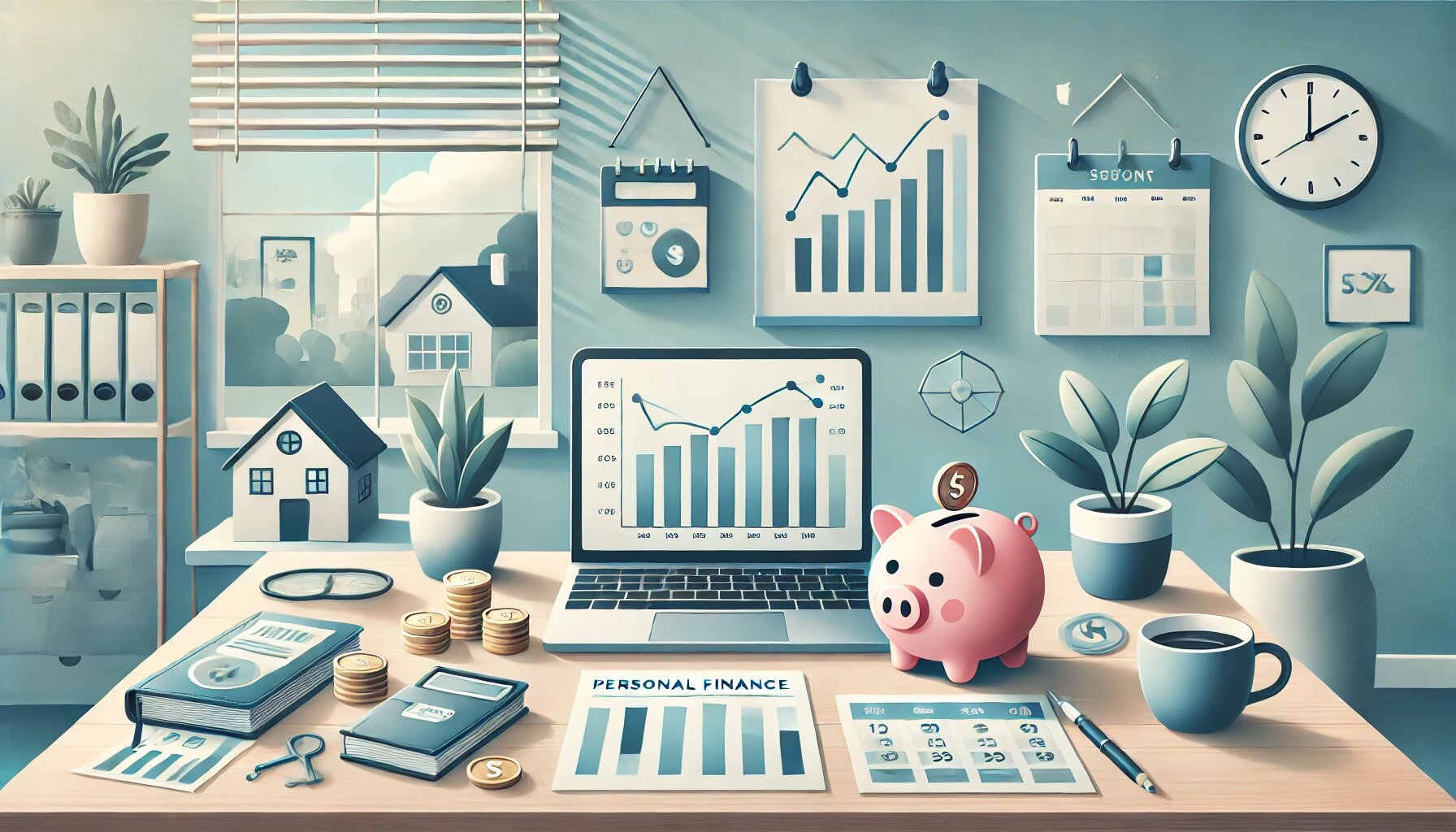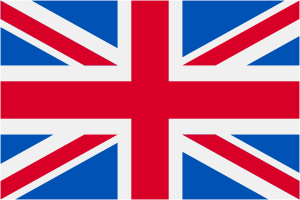Orientuj sa v témach osobných financií a finančnej gramotnosti aj vďaka výberu fráz, slovíčok a otázok v angličtine. Táto pomôcka na zlepšenie znalostí z angličtiny je určená pre mierne a stredne pokročilých študentov. Ak je to tebe blízka téma, odporúčam ju aj pre začiatočníkov.
50 slovíčok na tému Finančná gramotnosť a osobné financie
| Anglické slovo | Slovenský preklad | Vysvetlenie v angličtine |
|---|---|---|
| Budget | Rozpočet | A plan for how to spend and save money. |
| Savings | Úspory | Money set aside for future use. |
| Expense | Výdavok | Money spent on goods or services. |
| Income | Príjem | Money earned from work or investments. |
| Debt | Dlhy | Money owed to another person or institution. |
| Loan | Pôžička | Borrowed money that must be repaid. |
| Interest | Úrok | A fee charged for borrowing money. |
| Investment | Investícia | Money used with the hope of making more money. |
| Credit card | Kreditná karta | A card allowing you to borrow money for purchases. |
| Debit card | Debetná karta | A card that withdraws money directly from your bank account. |
| Bank account | Bankový účet | A place where you store your money in a bank. |
| Balance | Zostatok | The amount of money in a bank account. |
| Transaction | Transakcia | An exchange or transfer of money. |
| Statement | Výpis | A record of financial activity. |
| Cash flow | Peňažný tok | The movement of money in and out of a business or account. |
| Overdraft | Prečerpanie | Spending more money than is available in your account. |
| Tax | Daň | Money paid to the government. |
| Mortgage | Hypotéka | A loan to buy property or a house. |
| Retirement | Dôchodok | The period of life when one stops working. |
| Emergency fund | Rezervný fond | Money saved for unexpected expenses. |
| Insurance | Poistenie | Protection against financial loss. |
| Savings account | Sporiaci účet | A bank account for saving money. |
| Expenditure | Výdavky | The total amount of money spent. |
| Asset | Majetok, Aktívum | Something valuable owned by a person or business. |
| Liability | Záväzok, Pasívum | Money or debts that a person or company owes. |
| Budgeting | Tvorba rozpočtu | The process of planning how to spend money. |
| Net income | Čistý príjem | Income after taxes and deductions. |
| Gross income | Hrubý príjem | Total income before taxes and deductions. |
| Expense tracker | Sledovanie výdavkov | A tool to monitor how money is spent. |
| Withdrawal | Výber (peňazí) | Taking money out of a bank account. |
| Deposit | Vklad | Putting money into a bank account. |
| Inflation | Inflácia | The rise in prices and decrease in purchasing power. |
| Bankruptcy | Bankrot | A legal process for when a person or business cannot repay debts. |
| Dividend | Dividenda | A share of profits paid to shareholders. |
| Financial literacy | Finančná gramotnosť | Understanding how to manage money effectively. |
| Profit | Zisk | Money earned after expenses are paid. |
| Loss | Strata | Spending more money than earned. |
| Passive income | Pasívny príjem | Money earned without actively working for it. |
| Fixed expenses | Fixné výdavky | Costs that do not change, such as rent or a car payment. |
| Variable expenses | Variabilné výdavky | Costs that change, such as groceries or utilities. |
| Credit score | Kreditné skóre | A number showing how reliable you are at repaying debts. |
| Debt consolidation | Konsolidácia dlhov | Combining multiple debts into one loan. |
| APR (Annual Percentage Rate) | Ročná percentuálna miera nákladov | The yearly interest rate charged on loans. |
| Financial advisor | Finančný poradca | A professional who helps with money management. |
| Revenue | Príjem/zisk | Total income earned by a company or individual. |
| Subsidy | Dotácia/subvencia | Financial assistance provided by the government. |
15 fráz na tému Finančná gramotnosť a osobné financie
| Anglická fráza | Slovenský preklad | Vysvetlenie v angličtine |
|---|---|---|
| „Live within your means“ | Ži podľa svojich možností | Spend less than or equal to what you earn. |
| „Save for a rainy day“ | Šetri na horšie časy | Save money for unexpected events or emergencies. |
| „Pay off your debts“ | Splatiť svoje dlhy | To completely repay borrowed money. |
| „Stick to a budget“ | Držať sa rozpočtu | Follow a financial plan without overspending. |
| „Cut back on expenses“ | Znížiť výdavky | Spend less money on non-essential items. |
| „Build an emergency fund“ | Vytvoriť rezervný fond | Save money for unexpected situations. |
| „Invest in your future“ | Investuj do svojej budúcnosti | Spend money or time on something that will benefit you later. |
| „Money doesn’t grow on trees“ | Peniaze nerastú na stromoch | A saying to remind people to be careful with money. |
| „Make ends meet“ | Vyžiť | To have enough money to cover basic needs. |
| „Borrow responsibly“ | Požičiavaj si zodpovedne | Take loans only when necessary and affordable. |
| „Keep track of your spending“ | Sleduj svoje výdavky | Monitor how much money you spend. |
| „Avoid living paycheck to paycheck“ | Vyhni sa žitiu od výplaty k výplate | Save enough so you don’t run out of money before the next paycheck. |
| „Set financial goals“ | Stanov si finančné ciele | Plan for what you want to achieve with your money. |
| „Diversify your investments“ | Diverzifikuj svoje investície | Spread your money across different types of investments to reduce risk. |
| „Don’t put all your eggs in one basket“ | Nevsádzaj všetko na jednu kartu | Avoid relying on one source of income or investment. |

30 otázok na tému Finančná gramotnosť a osobné financie
- What does financial literacy mean to you?
- How do you usually keep track of your expenses?
- Have you ever created a personal budget? How did you organize it?
- What is the difference between „needs“ and „wants“ when managing your finances?
- Do you use any apps or tools to manage your finances? Which ones?
- How do you save money for long-term goals, such as travel or a house?
- What are some common financial mistakes people make?
- What advice would you give someone who wants to save more money?
- Do you know the difference between a debit card and a credit card? Can you explain it?
- How often do you review your bank statements or financial accounts?
- What are some ways to reduce unnecessary spending?
- Do you think it’s important to invest money? Why or why not?
- What types of investments do you know about (e.g., stocks, real estate, mutual funds)?
- Have you ever had to borrow money? How did you manage to pay it back?
- What are interest rates, and why are they important to understand?
- How do you feel about using credit cards? Are they useful or dangerous?
- Can you explain the term „debt“? How can someone avoid or manage it?
- Have you ever had to set financial priorities? What did you choose to spend or save for?
- How can someone plan for unexpected expenses, like car repairs or medical bills?
- Do you believe children should learn about money in school? Why or why not?
- How do you feel about shopping during sales or discounts? Do you think it’s always worth it?
- What are some habits of financially successful people?
- What’s the best way to start an emergency fund?
- Do you think having a retirement plan is important? Why or why not?
- What does the term „living paycheck to paycheck“ mean, and how can someone avoid it?
- Do you prefer to shop online or in physical stores? How does it affect your spending?
- What’s your opinion on using loans for education, homes, or cars?
- Have you ever heard of passive income? Can you give an example of it?
- What do you think is more important: saving money or earning more money?
- What advice would you give someone who is starting to manage their own finances for the first time?


